Shokz OpenRun bone conduction headphones review
An excellent choice for awkward ears and sweaty sessions indoors
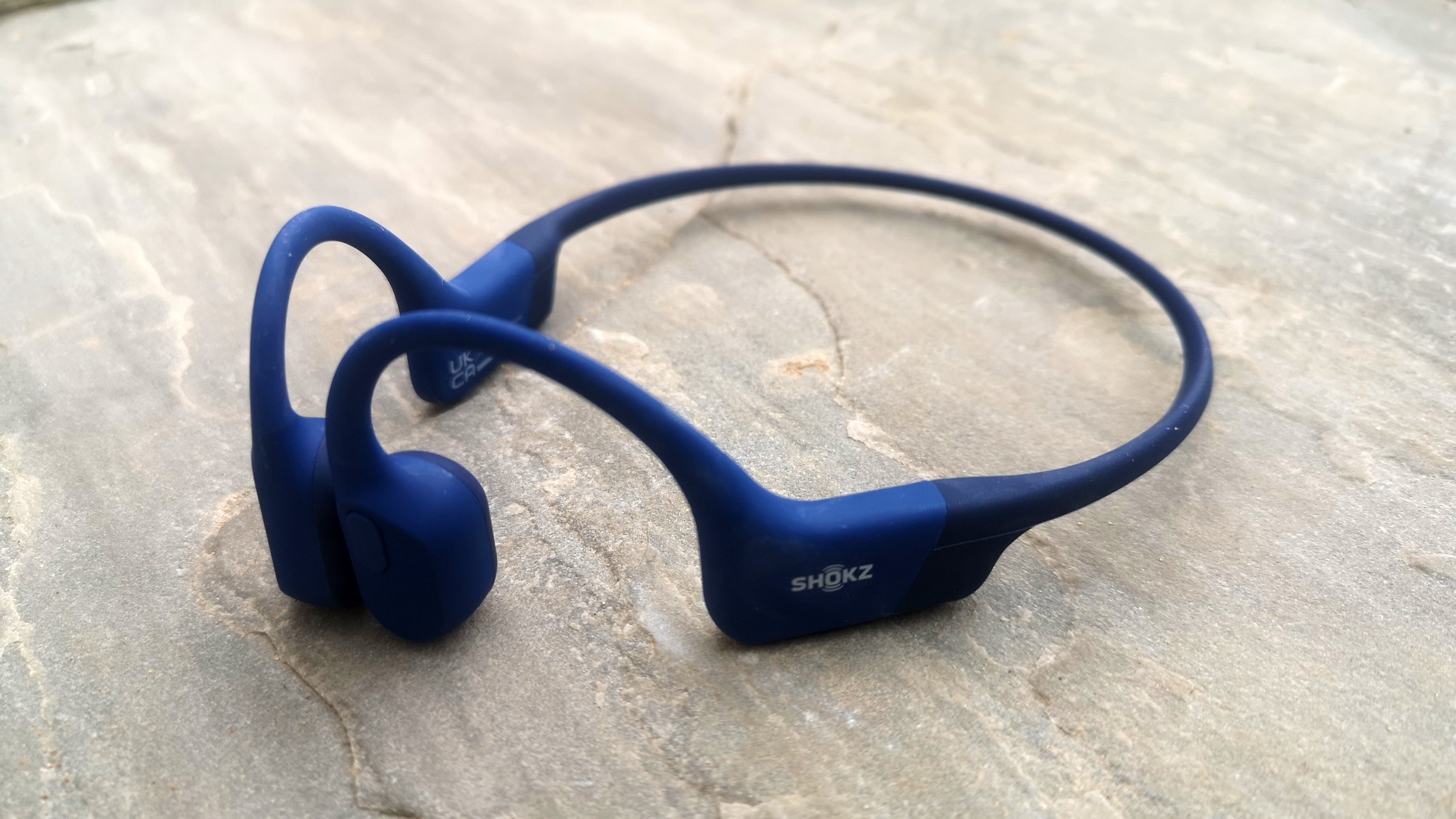
If you struggle to keep in-ear headphones in your ears, or find that sweaty turbo session wreak havoc on consistent sound quality, then Shokz's OpenRun could be the answer.
-
+
Lightweight
-
+
Comfortable
-
+
Don't close off outside hearing
-
+
Quick to charge and resilient
-
-
Occasional stutters in Bluetooth
-
-
More feedback from the unit would be helpful
You can trust Cycling Weekly.

Headphones can become a source of constant irritation among active people who like their activity to take place alongside their favourite tunes. Common frustrations are around 'death by sweat' and a failure to stay put. Shokz's OpenRun Bone Conduction headphones address, and solve, both issues for me in almost all instances.
This is the second pair of Shokz (formerly, AfterShokz) headphones that I've tested. I had believed that I'd found my perfect match in the OpenMove headphones, which like these, use bone conduction technology to transmit audio whilst leaving your ears open.
However, several months after the review period ended (but still within the two-year warranty period), these failed, and I've updated the review to reflect that. The good news is that the OpenRun headphones carry all of the benefits of the OpenMove which I loved, and, the brand appears to have addressed the issue which I later encountered.
Shokz OpenRun headphones: Construction
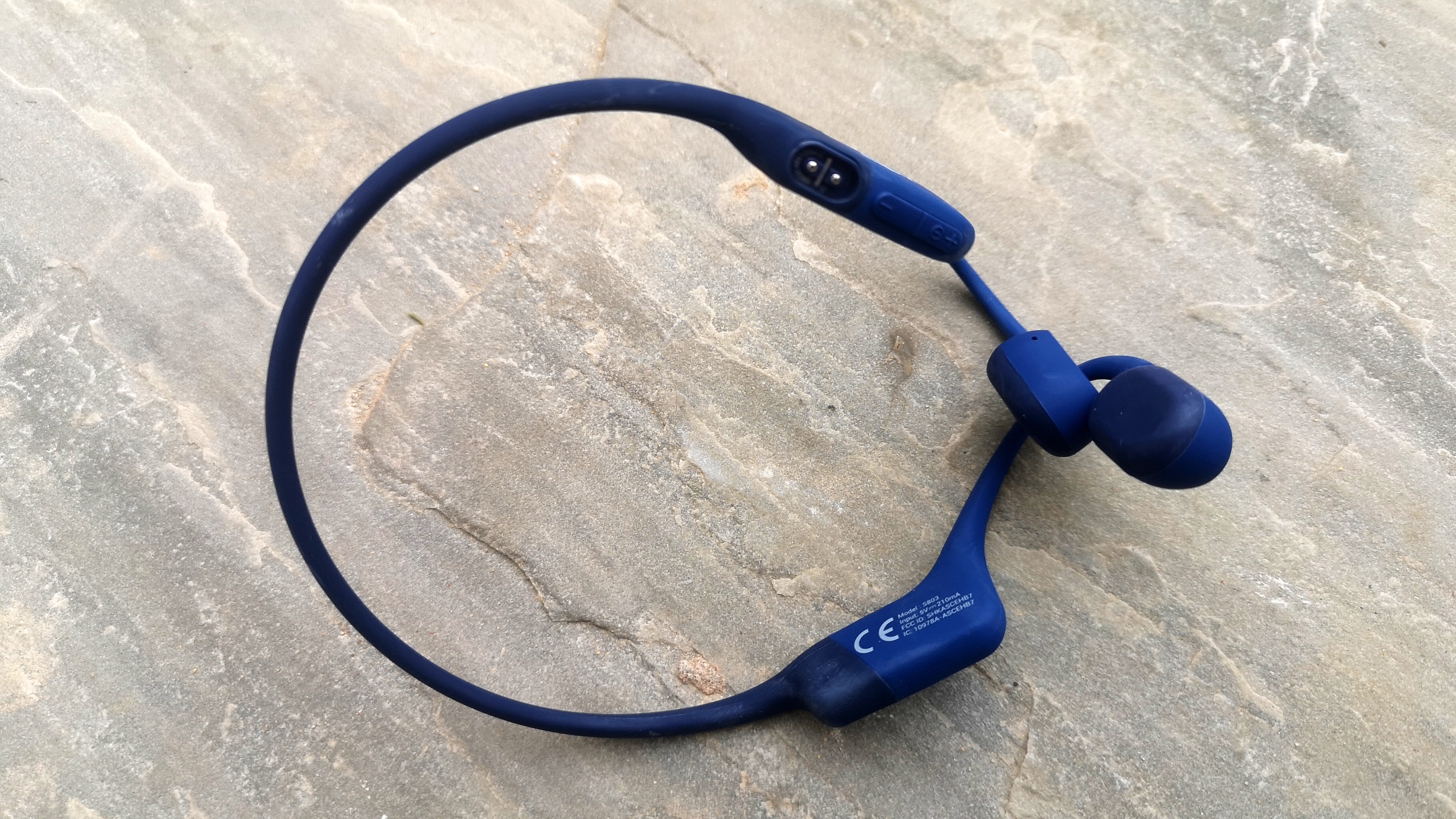
The all important propriatry charge port
You probably want to know what went wrong with the OpenMove headphones. Simply, they stopped charging. Visiting the Troubleshooting page, the first item on the agenda is:
"My OpenMove isn’t charging.
Test the headphones with an alternate micro USB. If the headphones continue to not charge, file a warranty claim here [link]"
The OpenMove headphones use a USB-C charge cable and port [I don't know why the Troubleshoot page refers to a micro USB, perhaps this has changed over time]. The USB-C is a widely adopted standard and a vast improvement on the former industry-leading choice of Micro-USB. However, the port is not impenetrable, and whilst the headphones are sweat-resistant and waterproof to IP55 standard, I imagine - but cannot guarantee - that ingress of either liquid or dust/debris caused the issue. This is not, however, a review of the OpenMove.
The latest race content, interviews, features, reviews and expert buying guides, direct to your inbox!
Enter: OpenRun, which uses a dramatically different and proprietary charge port, featuring a magnetic attachment function that does not, as far as I can see, allow any opportunity for ingress.
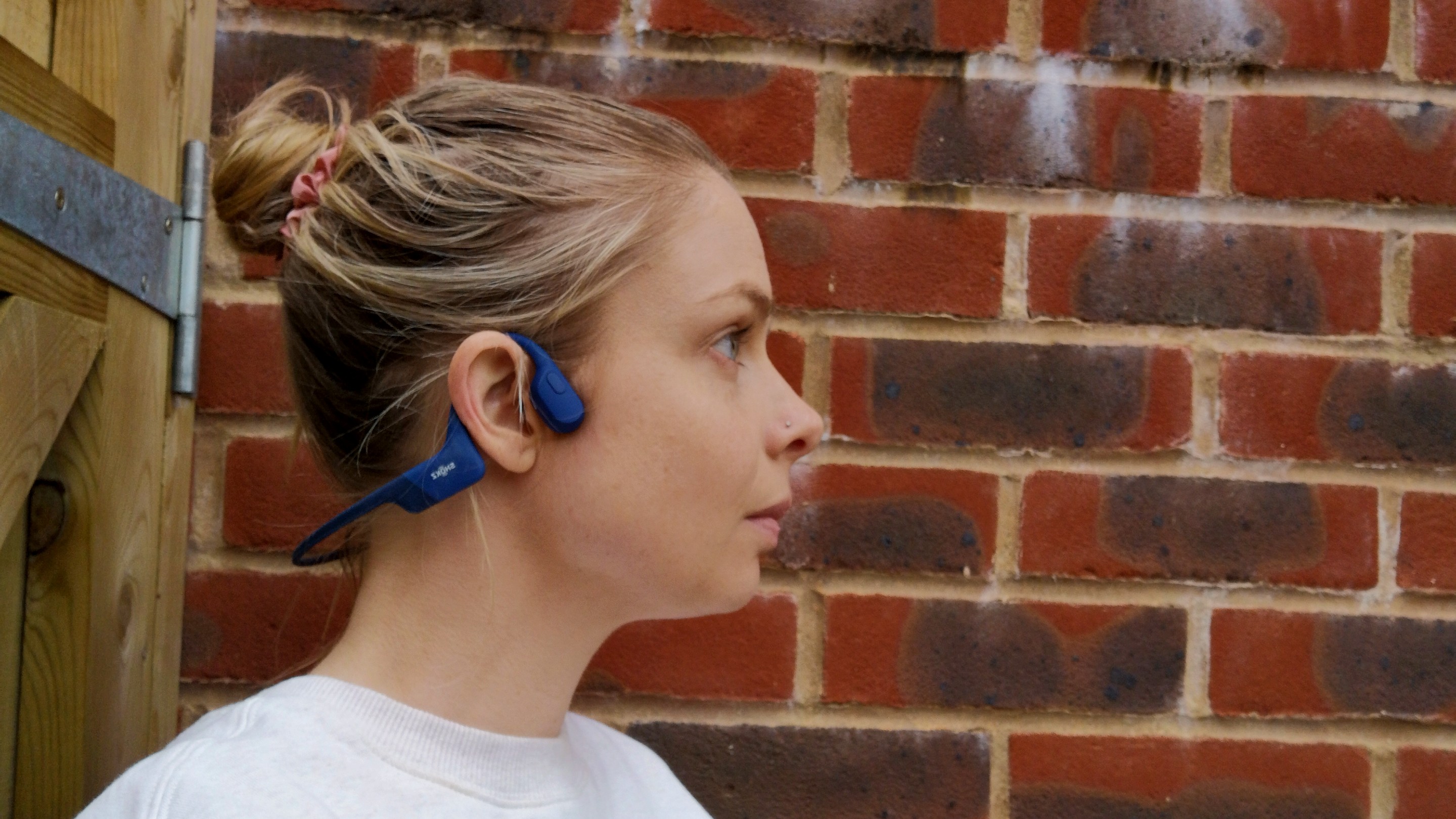
Whilst Shokz is very clear that these are not intended for swimming, the waterproofing rating is improved, at IP67. Meeting this external standard means that "the unit can be dropped into a body of water up to a meter deep for half an hour," though of course, it's not advisable to try to push the limits.
The charging mechanism isn't only more resilient. Whilst standard battery life is 8-hours, 'Quick Charge' tech means that you can get 1.5 hours' worth of juice in just 10 minutes. This is extremely useful in the instance that you're planning to use the headphones within half an hour, but have forgotten to plug them in. The battery life claims are based on Shokz's lab testing, your own battery life will be affected by the likes of volume and temperature.
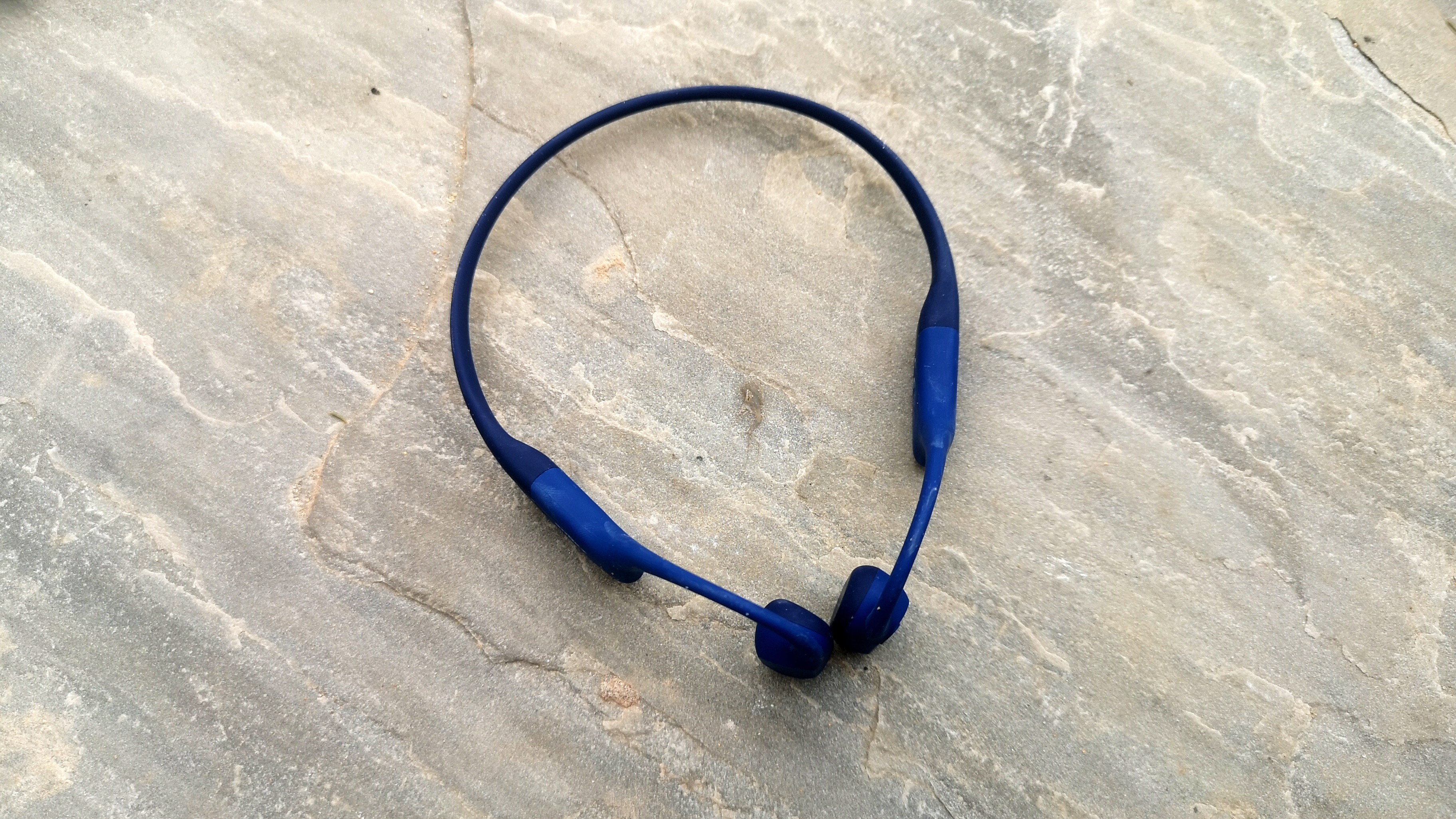
The OpenRun headphones also use "8th generation" bone conduction technology, which reportedly offers "deeper bass, less vibration and louder volume" than the 7th generation.
The unit connects to your device via Bluetooth 5.1, and can be used to play music, answer calls, or if training indoors and using Zwift Companion to speak to ride buddies.
The headphones drop onto the scales at 26g, and the available controls are limited to on/off, volume up/down, and a 'multifunction' button on the front of the left earpiece which lets you play/pause, skip forward, answer/end a call or redial a number.
You'll get a silicone rubber carry case in the box, and this does feel like a high-quality addition which I've made every effort to use whenever putting the headphones into a sports bag.
Shokz OpenRun headphones: In Use
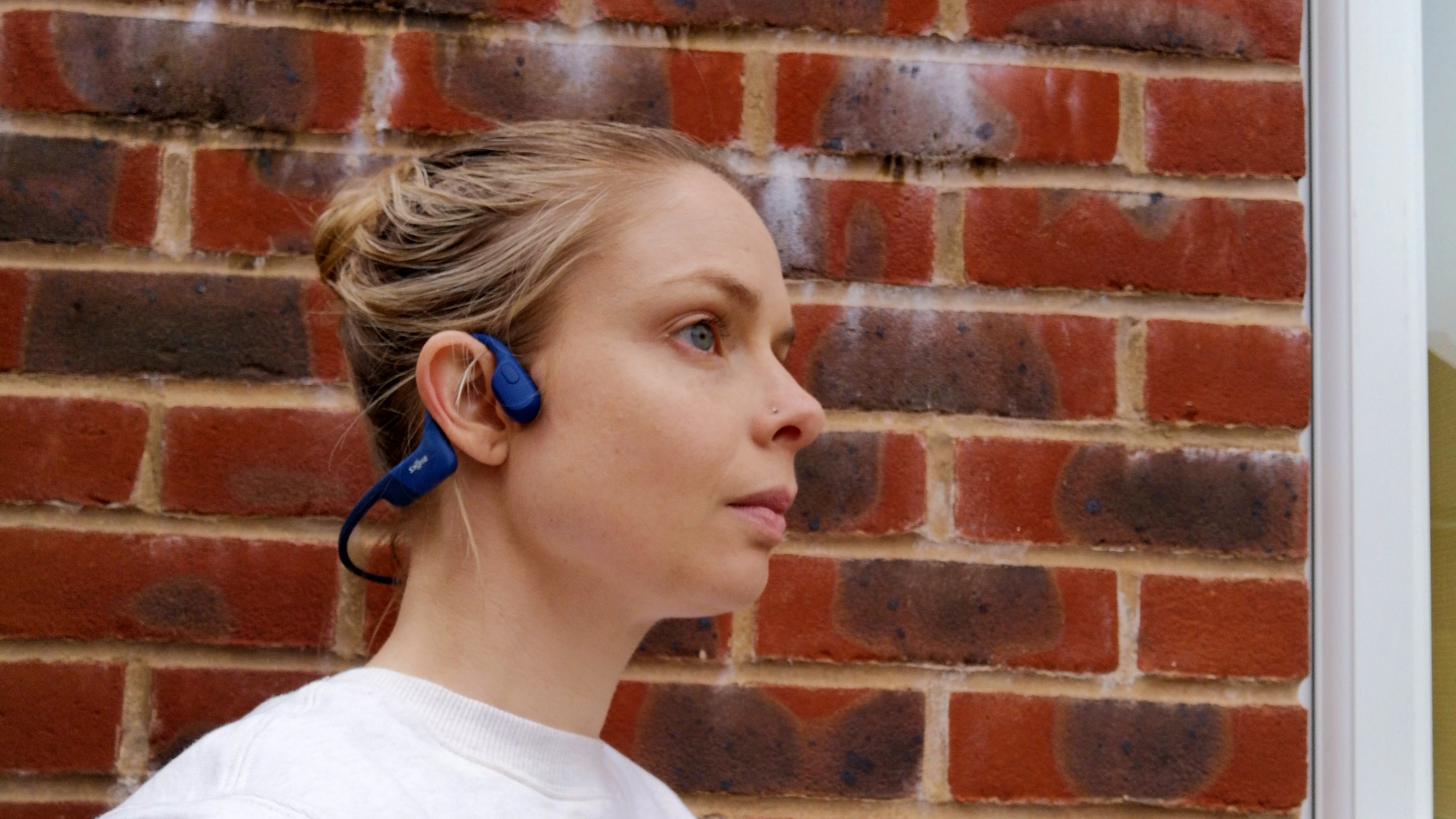
I used these headphones when training indoors on a smart exercise bike or turbo trainer, in the gym, and when running outside.
Pairing to my phone was quick and easy, I just switched the headphones on and searched for the device via my Bluetooth settings. On the one occasion that they didn't connect automatically, holding the 'power' button to pair was effective.
When you turn the headphones on, a small light appears and a voice says "Power: On", before telling you if the battery life is high, medium or low. If it's very low, you'll get "Charge Me". There isn't any more granular indication, such as "58%", it would be nice to have a little more feedback from Shokz.
To turn the headphones off, simply hold the power button. I did find that I'd often forget to do this, which did go some way to proving quite how impressive the battery life is but was annoying. Again, some sort of indication (such as the light remaining on) might be nice, albeit a drain on the said impressive battery.
The 'multifunction' button is pretty useful, once you've learned how to utilise it.
In terms of comfort, Shokz's solution is number one for me. I've got small ears, and I have yet to find an in-ear solution that works for me - they all fall out, eventually. At 26g, the Shokz are lightweight, too. The band which extends around the head can become irritating when carrying out laying-down core exercises, but in this instance, I simply adjust the positioning to the top of my head. I have noticed that the US site seems to display a 'Mini' version, which measures 0.5 inches shorter at the band, and would likely eliminate some of the overhang around the back of my neck/head.
The bone conduction tech does keep your ears open, and when running down country lanes, I could always hear approaching cars - unless I turned the volume up to an uncomfortable level, which I'm not inclined to do.
Speaking of volume, there's no need to worry about this being insufficient. I did find that if I slightly exceeded what was comfortable, I could hear my own tunes seeping into the atmosphere when I took the headphones off, but as long as I stayed within reasonable limits, no one else could hear what I'd chosen to add to my playlist.
I did occasionally find I'd get short-lived stutters in sound transmission, this would never last more than 15 seconds, and I imagine is more to do with my device's Bluetooth than the OpenRun headphones.
The nature of bone conduction headphones means that you can experience a little vibration, particularly in response to anything with a heavy bass line, but it's not a regular occurrence.
I've put the headphones through hours of sweaty sessions, and not experienced any issues with charging or damage. Whilst I'd need to use them for a year+ to be fully confident, I do think that the new charging mechanism is likely to result in vastly improved longevity and a reduced chance of warranty replacements being required.
At £129.95/$129.95, the Shokz headphones do have some competition from lesser-known brands (just check Amazon: bone conduction headphones). However, these come with a 2-year-warranty, high-quality sound, and I couldn't put a price on the benefit of that new proprietary charging system.
- RRP: £129.95/$129.95
- Weight: 26g
FAQs
Is AfterShokz bone conduction?
Yes, Shokz (formerly AfterShokz) produces bone conduction headphones, with models including the Shokz OpenRun – which we’ve had on test.
Are bone conduction headphones worth it?
In our view, yes. They keep your ears open for hearing traffic and, in our experience, the latest iteration of Shokz OpenRun is much more resistant to water (sweat) than typical in-ear headphones
Michelle Arthurs-Brennan the Editor of Cycling Weekly website. An NCTJ qualified traditional journalist by trade, Michelle began her career working for local newspapers. She's worked within the cycling industry since 2012, and joined the Cycling Weekly team in 2017, having previously been Editor at Total Women's Cycling. Prior to welcoming her first daughter in 2022, Michelle raced on the road, track, and in time trials, and still rides as much as she can - albeit a fair proportion indoors, for now.
Michelle is on maternity leave from April 2025 until spring 2026.
